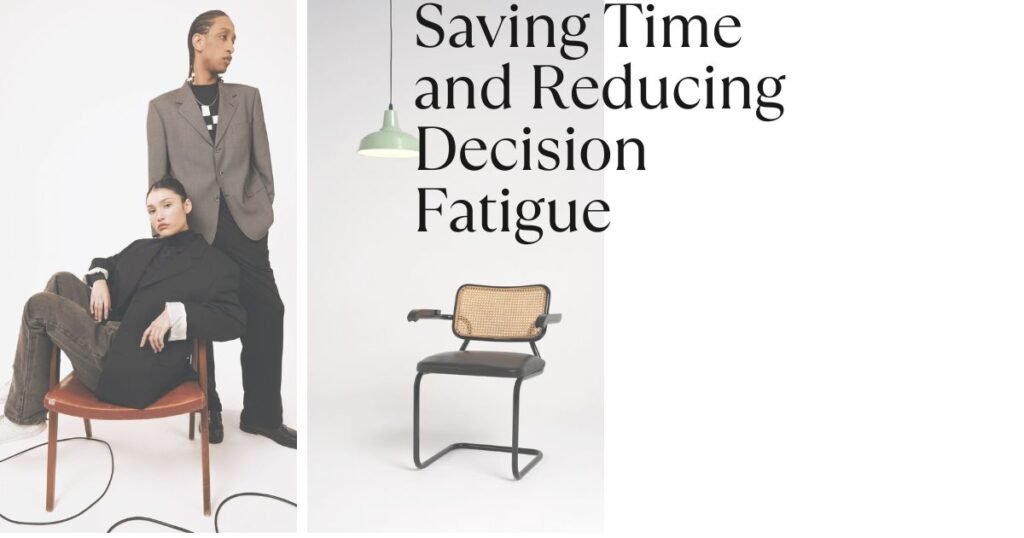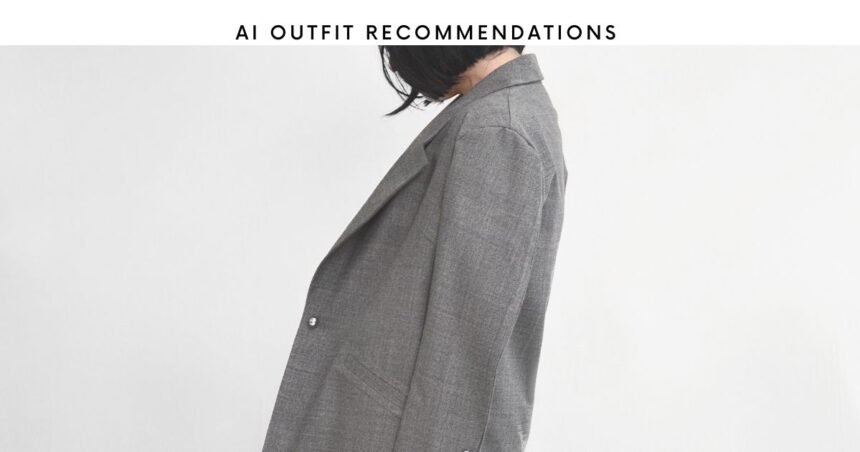Artificial Intelligence (AI) is no longer just a concept for tech enthusiasts—it’s becoming an integral part of our daily lives, influencing everything from how we communicate to how we shop. Among the many innovations AI has introduced, AI outfit recommendations are rapidly gaining popularity for their ability to simplify and personalize fashion choices. But what exactly are AI outfit recommendations, and why are they worth your attention? Let’s explore!
Understanding AI Outfit Recommendations
What Are AI Outfit Recommendations?
AI outfit recommendations offer personalized style suggestions powered by advanced algorithms. These systems consider your past purchases, style preferences, body measurements, and the latest fashion trends to curate outfits that align perfectly with your unique taste. It’s like having a personal stylist who knows your wardrobe inside and out, always ready to suggest the perfect look for any occasion—only this stylist never takes a break and gets better at understanding your style with every interaction.

How AI Algorithms Work in Fashion?
The magic of AI outfit recommendations lies in sophisticated algorithms that process vast amounts of data to identify patterns and make predictions. These systems analyze your shopping history, social media activity, and even the fashion choices of people with similar tastes to deliver personalized suggestions. As AI continues to learn and adapt, its recommendations become more accurate and better aligned with your evolving style.
The Evolution of Fashion with AI
From Traditional Styling to AI-Powered Fashion
Fashion has always been about expressing individuality, but traditional styling methods can be time-consuming and sometimes overwhelming. With AI-powered fashion tools, the process becomes more efficient and personalized. AI eliminates the guesswork by providing scientifically backed recommendations, making it easier for you to stay stylish without spending hours browsing through endless options.
The Role of Big Data in AI Fashion Tools
Big data plays a crucial role in the effectiveness of AI outfit recommendations. By analyzing vast datasets—ranging from consumer behavior and fashion trends to fabric choices and color palettes—AI can predict what styles will resonate with you. This data-driven approach ensures that the recommendations are not only personalized but also aligned with the latest trends.
How AI Analyzes Your Style
Data Points Considered by AI
When generating outfit recommendations, AI considers various data points, including your body type, preferred colors, favorite brands, and even your lifestyle. By analyzing this information, AI can create a detailed style profile that helps it suggest outfits that are both flattering and practical.
The Personalization Process
The personalization process in AI fashion tools is dynamic. As you provide feedback—whether by liking, disliking, or purchasing recommended items—the AI refines your style profile. Over time, this leads to more accurate and satisfying recommendations, making the AI feel like a fashion-savvy friend who truly understands your taste.
Balancing Trend and Individuality
One of the unique aspects of AI outfit recommendations is their ability to balance current trends with your personal style. While the AI takes global fashion trends into account, it doesn’t force them on you. Instead, it suggests trendy items that complement your existing wardrobe, ensuring that you stay fashionable without compromising your individuality.
Benefits of AI Outfit Recommendations
Enhanced Personalization for Unique Styles
AI outfit recommendations offer a level of personalization that is hard to achieve through traditional shopping. Whether you have a quirky sense of style or prefer classic looks, AI can cater to your preferences by providing suggestions that reflect your personality.

Saving Time and Reducing Decision Fatigue
With so many fashion choices available, it’s easy to feel overwhelmed. AI outfit recommendations streamline the decision-making process by narrowing down your options to those that suit you best. This not only saves time but also reduces decision fatigue, making shopping more enjoyable.
Accessibility and Inclusivity in Fashion
AI has the potential to make fashion more inclusive by offering recommendations tailored to all body types, sizes, and styles. Whether you’re petite, plus-sized, or somewhere in between, AI can help you find outfits that make you feel confident and stylish.
Top AI Outfit Recommendation Platforms
Overview of Leading AI Fashion Apps
Several AI-powered fashion apps are revolutionizing the way we shop for clothes. Apps like Stitch Fix, The Yes, and Glamd connect users with personalized fashion recommendations, making it easier to discover new brands and styles that align with their preferences.
Major retailers are increasingly adopting AI to enhance the shopping experience. By analyzing customer data, AI can predict which products will appeal to different segments of shoppers, leading to more targeted marketing and a better overall shopping experience.
How to Make the Most of AI Outfit Recommendations
Tips for Accurate AI-Assisted Shopping
To get the best results from AI outfit recommendations, it’s important to provide detailed information about your preferences and body measurements. Regularly update your style profile and give feedback on the recommendations to help the AI learn more about your tastes.
Customizing AI Recommendations to Your Taste
Many AI fashion tools allow you to customize recommendations by adjusting your style preferences. Whether you want to focus on eco-friendly brands, prefer a particular color palette, or need outfits for specific occasions, AI can adapt to your needs.
Challenges and Limitations
Potential Pitfalls in AI Recommendations
While AI outfit recommendations can be incredibly accurate, they are not without limitations. Sometimes, the AI may suggest items that don’t align with your personal style or may overlook certain preferences. It’s important to remember that AI is a tool to assist, not replace, your judgment.
Addressing Biases in AI Fashion Algorithms
Biases in AI algorithms can lead to recommendations that are less diverse or inclusive. For example, if the AI is trained on data that predominantly features a certain body type or skin tone, it may not offer the best suggestions for everyone. Ongoing efforts are being made to improve the inclusivity of AI in fashion.
AI and the Future of Fashion Retail
The Impact of AI on Shopping Habits
AI is poised to reshape the way we shop for clothes. With personalized recommendations and virtual try-on features becoming more common, consumers can expect a more efficient and enjoyable shopping experience. As AI continues to evolve, we may see even more innovative ways to integrate technology into fashion.
Predictions for AI-Driven Fashion in the Next Decade
The future of AI in the fashion industry looks promising. We can expect advancements in AI-powered customization, where clothes are designed and tailored based on individual preferences and body measurements. Additionally, AI may play a larger role in sustainable fashion, helping consumers make more environmentally conscious choices.
Ethical Considerations in AI Fashion
Privacy and Data Security Concerns
As with any technology that collects personal data, privacy is a major concern. Users should be aware of how their data is being used and ensure that they are using AI tools from reputable sources with strong data protection policies in place. It’s important to review the privacy settings of any AI fashion app you use to make sure your data is handled responsibly.
Ethical Implications of AI in Fashion
Beyond privacy concerns, there are broader ethical considerations when it comes to AI in fashion. For instance, the automation of fashion recommendations and design could impact jobs in the fashion industry. Moreover, there’s the question of whether AI can truly replace human creativity in fashion design. While AI is a powerful tool, it’s essential to strike a balance between leveraging technology and preserving the human element in fashion.
AI Outfit Recommendations for Sustainable Fashion
Promoting Sustainable Choices Through AI
One of the most promising applications of AI in fashion is its potential to promote sustainability. AI can help consumers make more sustainable choices by recommending eco-friendly brands, materials, and production processes. For instance, AI can highlight outfits made from organic or recycled fabrics, or suggest clothing from brands that prioritize ethical labor practices.
How AI Can Help Reduce Fashion Waste
Fashion waste is a significant environmental issue, and AI can play a role in reducing it. By providing more accurate size recommendations, AI can reduce the number of returns and exchanges, which are often associated with significant waste. Additionally, AI can help consumers build a more versatile wardrobe, encouraging the purchase of pieces that can be worn in multiple ways, thus reducing the need for frequent shopping.
Success Stories: Brands Leveraging AI for Fashion
Case Studies of Successful AI Implementation in Fashion
Several brands have successfully integrated AI into their business models, reaping the benefits of personalized customer experiences and increased sales. For example, H&M has used AI to analyze customer data and predict fashion trends, allowing the company to stock the right items at the right time. Similarly, Nike has employed AI to provide personalized product recommendations, enhancing customer satisfaction and loyalty.
Consumer Feedback on AI Recommendations
Consumers who have used AI fashion tools generally report positive experiences, especially in terms of the convenience and accuracy of recommendations. Many appreciate how AI simplifies the shopping process, helping them discover new styles and brands they might not have found on their own. However, there’s also recognition that AI is still evolving and that human input remains valuable in the fashion process.
Integrating AI into Your Daily Fashion Routine
How AI Can Simplify Your Morning Routine
One of the most practical benefits of AI outfit recommendations is how they can simplify your daily routine. Instead of spending time each morning deciding what to wear, you can rely on AI to suggest outfits that suit the weather, your schedule, and your mood. This can be especially useful for those with busy lives who want to look stylish without putting in a lot of effort.
Using AI for Special Occasions and Events
AI isn’t just for everyday fashion—it can also help you dress for special occasions. Whether you’re preparing for a wedding, a business event, or a casual outing with friends, AI can suggest outfits that align with the dress code and the impression you want to make. By analyzing the context and your personal style, AI ensures that you’re dressed appropriately and stylishly for any event.
AI vs. Human Stylists: A Comparison
The Advantages and Drawbacks of Each
While AI offers many advantages, such as efficiency and data-driven insights, it’s not a complete replacement for human stylists. Human stylists bring a personal touch, creativity, and an understanding of nuance that AI is still learning to replicate. On the other hand, AI is constantly available, can process vast amounts of data quickly, and is often more affordable than hiring a personal stylist. Ideally, a combination of both could offer the best of both worlds.
Can AI Replace the Human Stylist?
While AI can provide excellent fashion recommendations, it’s unlikely to fully replace human stylists in the near future. Human stylists offer a level of emotional intelligence, creativity, and personal connection that AI cannot yet match. However, AI can serve as a valuable tool for stylists, helping them refine their suggestions and offering a starting point for personalized fashion advice.
Conclusion
AI outfit recommendations are transforming the way we approach fashion, making it more accessible, personalized, and efficient. While there are still challenges and ethical considerations to address, the benefits of AI in fashion are clear. Whether you’re looking to streamline your daily routine, explore new styles, or make more sustainable fashion choices, AI can be a powerful ally in your fashion journey. As AI technology continues to evolve, its role in the fashion industry is likely to grow, offering even more innovative solutions for consumers and brands alike.
FAQs
How do AI outfit recommendations work?
AI outfit recommendations are generated by examining data like your previous purchases, personal style choices, and the latest fashion trends. The AI uses this data to suggest outfits that match your unique style profile.
Can AI truly match my personal style?
AI can get very close by analyzing your preferences and providing recommendations that align with your taste. However, it’s always a good idea to give feedback to refine the AI’s understanding of your style.
Are AI fashion apps safe to use?
Most reputable AI fashion apps prioritize data security, but it’s important to review the privacy policies and ensure that your personal information is protected.
How does AI contribute to sustainable fashion?
AI can promote sustainable fashion by recommending eco-friendly brands and materials, reducing fashion waste through accurate sizing, and encouraging versatile wardrobe choices.
What is the future of AI in fashion?
The future of AI in fashion looks promising, with advancements expected in personalized customization, sustainable fashion, and even AI-driven fashion design. AI will likely become an even more integral part of the fashion industry in the coming years.





